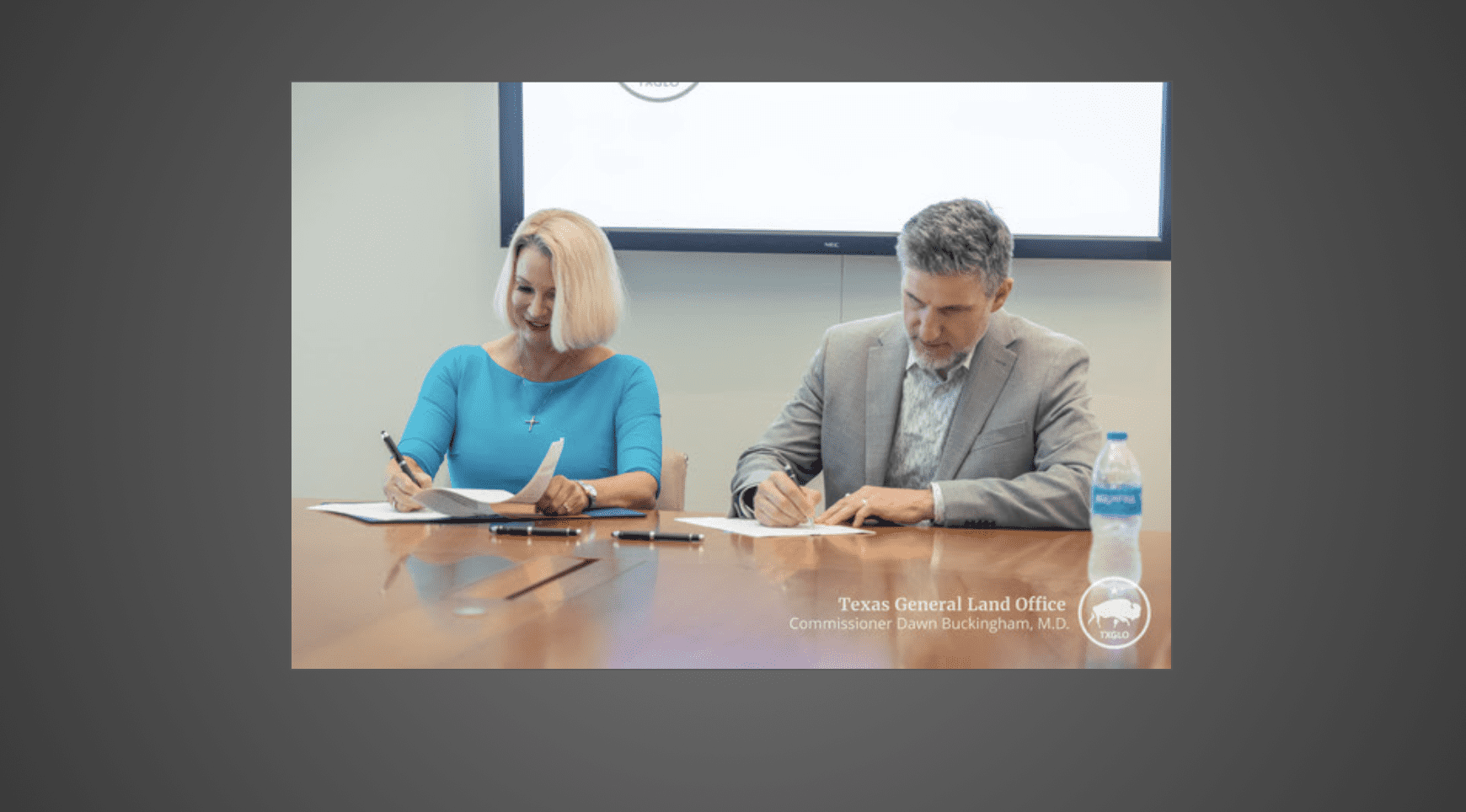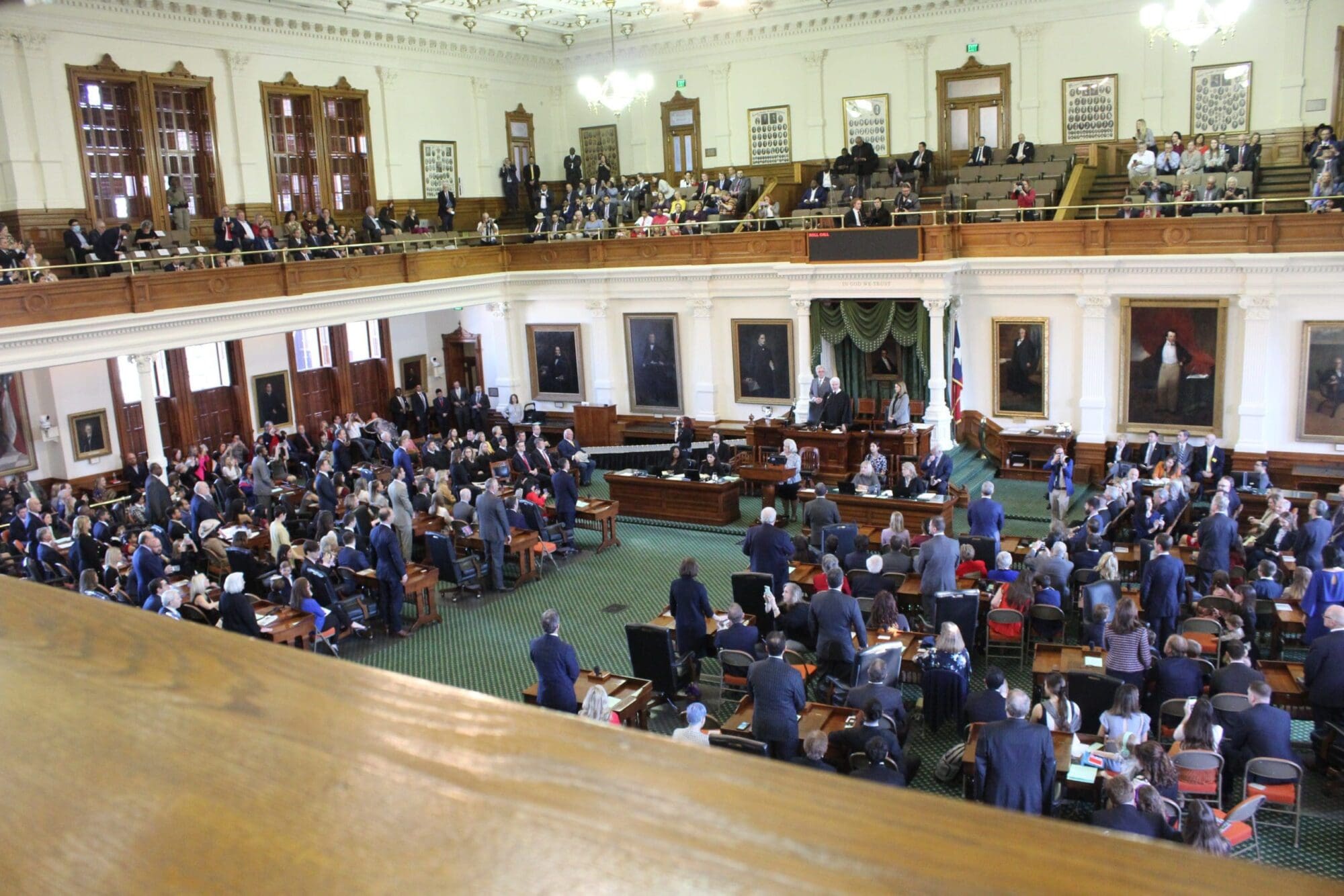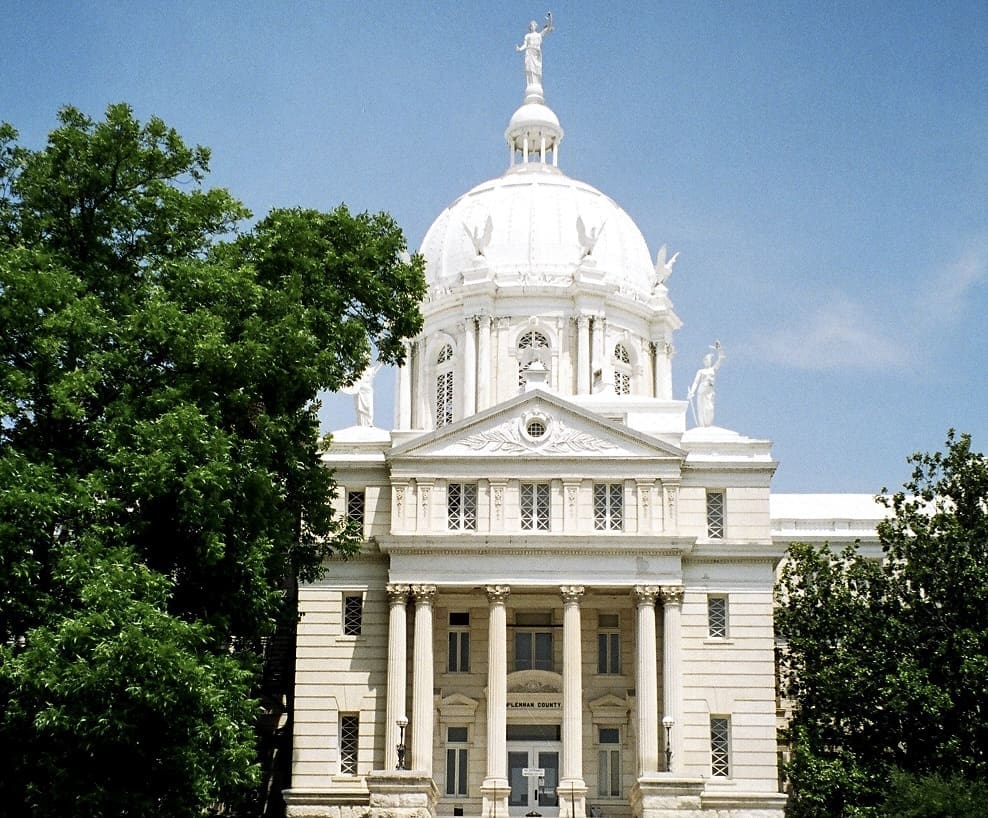The Texas General Land Office has approved the largest underwater carbon dioxide storage lease in United States history in a new agreement with oil and gas giant ExxonMobil.
In a Thursday press release, Texas Land Commissioner Dawn Buckingham announced the partnership, which charters around 270,000 acres of submerged state land offshore in Jefferson, Chambers, and Galveston Counties.
ExxonMobil will have the right to inject carbon dioxide through a process called “sequestration” into geologically secure strata located approximately one to two miles below the surface of the Gulf of Mexico.
The agreement will remove 6.7 million tons of carbon dioxide per year and might extend to 7.5 million tons per year if another proposed project receives enough tax credits, Bloomberg reported.
“As the steward of 13 million acres of energy-rich state land, I am proud to partner with ExxonMobil in utilizing state land for innovative solutions that can help ensure future energy production,” stated Buckingham.
“Energy independence is vital to ensuring our state and country remain economic leaders around the globe,” she continued. “As a mom, I have long said that educating our children is the most important thing we do, and I am thrilled that the revenue from this lease will go toward benefiting our great state along with our Texas school children.”
Texas and ExxonMobil’s deal specifically benefits the state’s Permanent School Fund, a sovereign wealth fund established in 1854 that reappropriates profits generated from state investments to government education.
As of Fiscal Year 2024, the PSF is among the largest sovereign wealth funds in the world. It generates an average of $4 billion in annual returns—roughly $22 million per day—with a total of $52 billion in investment assets.
ExxonMobil issued its own press release on the announcement, with Dan Ammann, president of the company’s Low Carbon Solutions unit, stating “This is yet another sign of our commitment to CCS and the strides we’ve been able to make.”
“With our growing roster of customers ready to deploy CCS, we’ll be driving substantial emissions reductions along the Gulf Coast through a comprehensive solution that includes capture, transportation, and storage—capabilities that make us a clear leader,” added Ammann.
Texas Scorecard reached out to both ExxonMobil and Buckingham’s office about the duration and financial terms of the agreement.
Buckingham’s office said that the term of the lease is dependent upon its needs and could last for a decade or more. They did not provide any information on the financial terms of the agreement.
ExxonMobil did not provide a statement on the agreement before publication.
A study by Energy Alliance published in August found that federal subsidies for carbon sequestration and emissions are the only federal fossil fuel subsidies that will successfully avoid vast cuts in the near future.
Notably, sequestration and emissions received no federal subsidies between 2010 and 2019 but are now slated to receive $7.2 billion by 2029.
The latest agreement comes just one week after ExxonMobil revealed it would transport and store up to 1.2 million metric tons per year of carbon dioxide from Louisiana to gather and treat natural gas produced in the state and East Texas.
No ads. No paywalls. No government grants. No corporate masters.
Just real news for real Texans.
Support Texas Scorecard to keep it that way!





